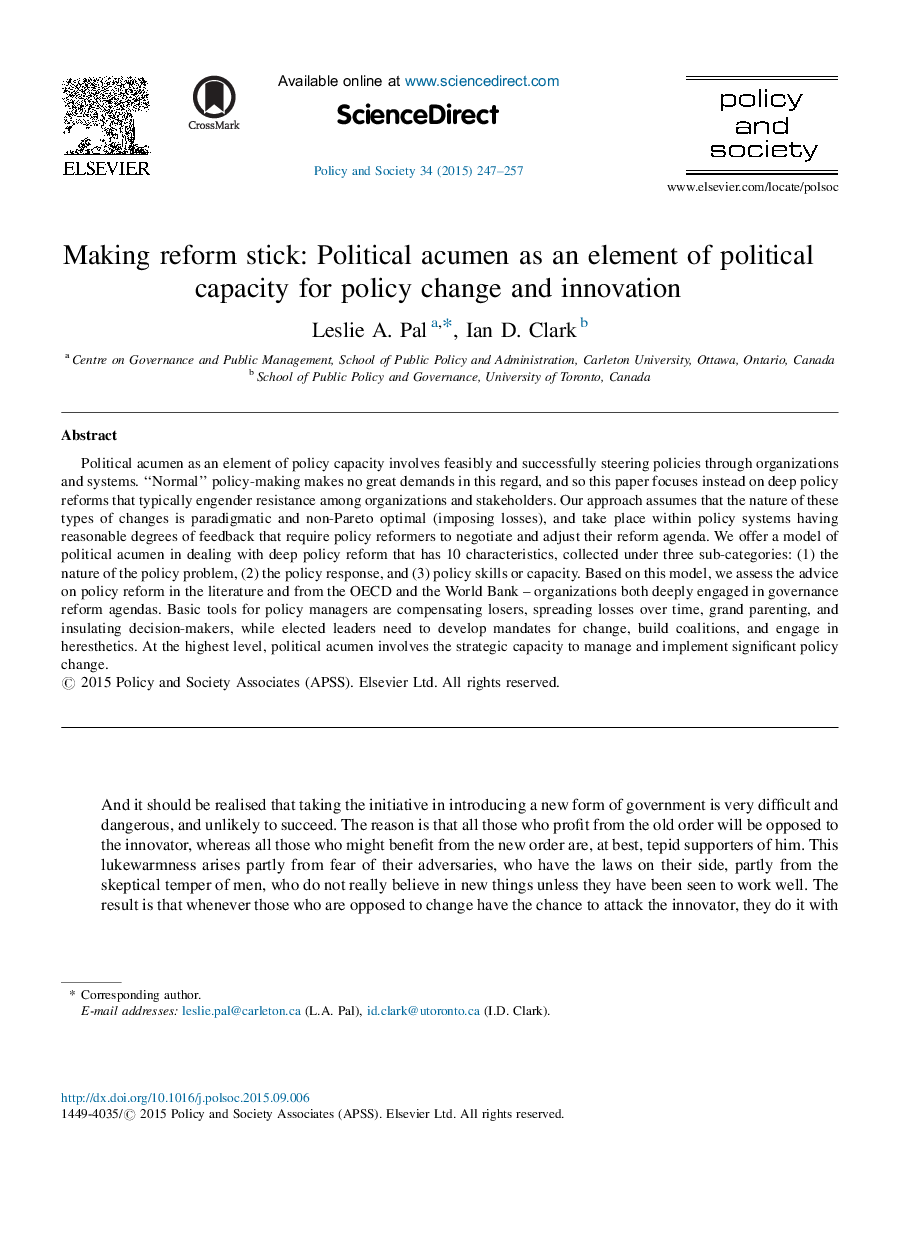| Article ID | Journal | Published Year | Pages | File Type |
|---|---|---|---|---|
| 1061483 | Policy and Society | 2015 | 11 Pages |
Political acumen as an element of policy capacity involves feasibly and successfully steering policies through organizations and systems. “Normal” policy-making makes no great demands in this regard, and so this paper focuses instead on deep policy reforms that typically engender resistance among organizations and stakeholders. Our approach assumes that the nature of these types of changes is paradigmatic and non-Pareto optimal (imposing losses), and take place within policy systems having reasonable degrees of feedback that require policy reformers to negotiate and adjust their reform agenda. We offer a model of political acumen in dealing with deep policy reform that has 10 characteristics, collected under three sub-categories: (1) the nature of the policy problem, (2) the policy response, and (3) policy skills or capacity. Based on this model, we assess the advice on policy reform in the literature and from the OECD and the World Bank – organizations both deeply engaged in governance reform agendas. Basic tools for policy managers are compensating losers, spreading losses over time, grand parenting, and insulating decision-makers, while elected leaders need to develop mandates for change, build coalitions, and engage in heresthetics. At the highest level, political acumen involves the strategic capacity to manage and implement significant policy change.
